
Reverend Gary Davis, also Blind Gary Davis, was a blues and gospel singer who was also proficient on the banjo, guitar and harmonica. Born in Laurens, South Carolina and blind since infancy, Davis first performed professionally in the Piedmont blues scene of Durham, North Carolina in the 1930s, before converting to Christianity and becoming a minister. After relocating to New York in the 1940s, Davis experienced a career rebirth as part of the American folk music revival that peaked during the 1960s. Davis' most notable recordings include "Samson and Delilah" and "Death Don't Have No Mercy".
"Baby, Let Me Follow You Down" is a traditional folk song popularised in the late 1950s by blues guitarist Eric Von Schmidt. The song is best known from its appearance on Bob Dylan's debut album Bob Dylan.
Gospel blues is a form of blues-based gospel music that has been around since the inception of blues music. It combines evangelistic lyrics with blues instrumentation, often blues guitar accompaniment.

Just Dave Van Ronk is a 1964 album by folk/blues singer Dave Van Ronk. It has not been released on CD.

Live at Sweetwater Two is a live Hot Tuna album recorded at the same time as the album, Live at Sweetwater, but contains no tracks from the previous release. The live performances feature Bob Weir of the Grateful Dead, blues-singer Maria Muldaur, and keyboardist Pete Sears. Also included is the previously unreleased studio track "Endless Sleep" from the Pair a Dice Found sessions. In 2004 Eagle Records re-mastered and re-released the album with several added tracks, and without the studio track included.
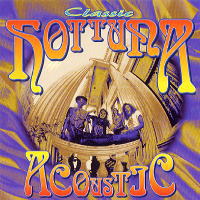
Classic Hot Tuna Acoustic is a Hot Tuna album released in 1996 and is an expansion of the A-side of the previous vinyl release Historic Live Tuna. The B-side of the previous release was expanded as Classic Hot Tuna Electric and released at the same time as this album. The tracks are taken from a live acoustic performance played on KSAN radio in 1971.
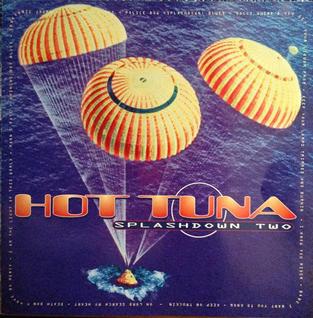
Splashdown Two is a 1997 CD release and expansion of the previous Hot Tuna vinyl release from 1984, Splashdown. It is a recording of a live acoustic performance from the mid-1970s that had played on the short-lived radio station WQIV.
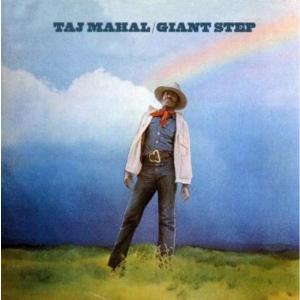
Giant Step/De Ole Folks at Home is the third studio album by American blues artist Taj Mahal. A double album, the first disc is electric, while the second is acoustic. Esquire included the album at number 27 on its list of "The 75 Albums Every Man Should Own".
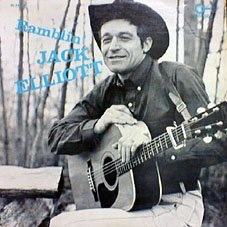
Ramblin' Jack Elliott is an album by American folk musician Ramblin' Jack Elliott, released in February 1962 on the Prestige International label.
Bull City Red was an American Piedmont blues guitarist, singer, and predominately washboard player, most closely associated with Blind Boy Fuller and the Reverend Gary Davis. Little is known of his life outside of his recording career.

Up with Donald Byrd is an album by American trumpeter Donald Byrd featuring performances by Byrd with Jimmy Heath, Stanley Turrentine, Herbie Hancock and Kenny Burrell recorded in 1964. It was released on the Verve label in 1965 as V/V6 8609.

"Bye and Bye We'reGoing to See the King" is a Christian song from the African-American musical tradition. It is known by a variety of titles, including "I Wouldn't Mind Dying " and "A Mother's Last Word to Her Daughter". It was recorded seven times before 1930, using the preceding titles.

Blind Connie Williams was an American blues guitarist who was a street performer beginning in the early 1930s. Williams was something of a journeyman throughout his busking career, but he lived in Philadelphia for most of his life. Much of his repertoire consisted of sanctified gospel songs and pre-war country blues standards. In 1961, Williams had a recording session with the record producer Pete Welding, the results of which were later released on a compilation album.

American Epic: The Best of Blind Willie Johnson is a compilation album released to accompany the award-winning American Epic documentary film series. It collects performances from Blind Willie Johnson's five recording sessions for Columbia Records in Dallas, Atlanta, and New Orleans between 1927 and 1930. The album was released as a 16-track download and a vinyl LP.

A Little More Faith is an album by blues musician Reverend Gary Davis released on the Bluesville label in September 1961.

Say No to the Devil is an album by blues musician Reverend Gary Davis recorded in 1961 and released on the Bluesville label in August 1962.
The Guitar & Banjo of Reverend Gary Davis is an album by blues musician Reverend Gary Davis recorded in 1964 and released on the Prestige Folklore label.

Goin' Away is an album by the blues musician Lightnin' Hopkins, recorded in 1963 and released on the Bluesville label.
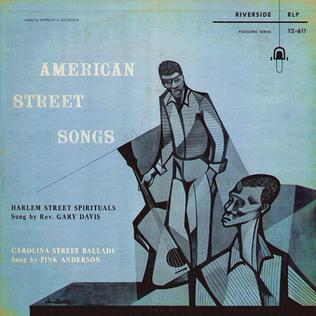
American Street Songs, reissued as Gospel, Blues and Street Songs, is a shared album by blues musicians Pink Anderson and Reverend Gary Davis recorded in 1950 and 1956 and released on the Riverside Folklore Series label in August 1956.
"Death Don't Have No Mercy" is a song by the American gospel blues singer-guitarist Blind Gary Davis. It was first recorded on August 24, 1960, for the album Harlem Street Singer (1960), released by Prestige Records' Bluesville label during a career rebirth for Davis in the American folk music revival. The recording was engineered by Rudy Van Gelder at his studio in Englewood Cliffs, New Jersey, and produced by Kenneth S. Goldstein, who had pursued Davis in Prestige's effort to capitalize on the revival.















